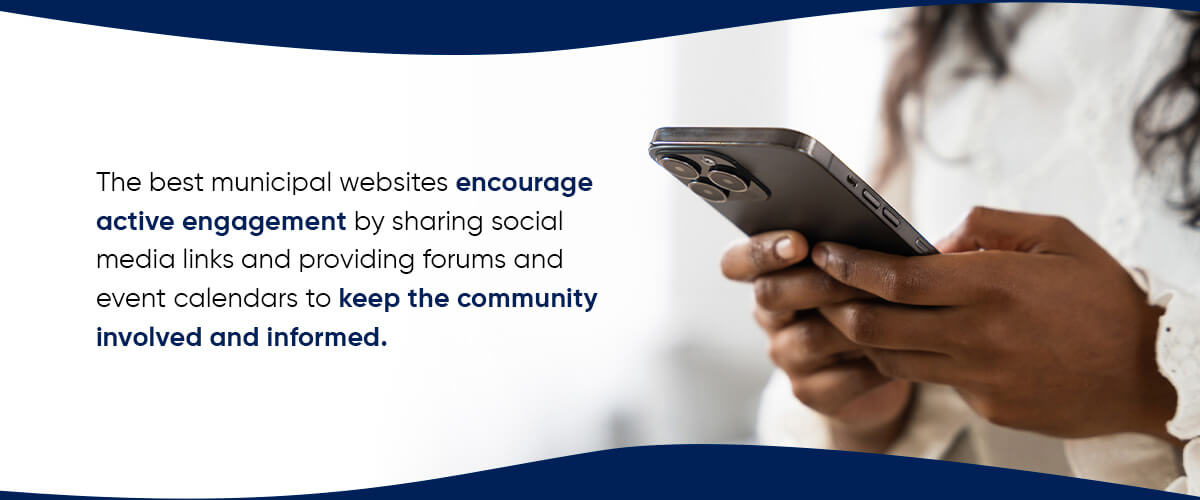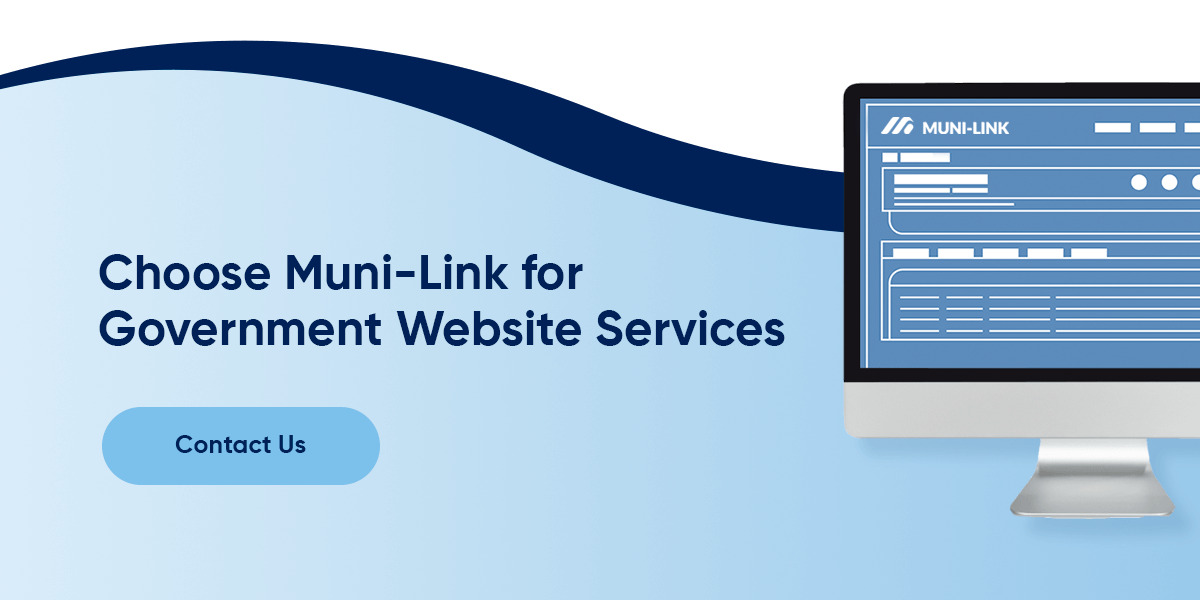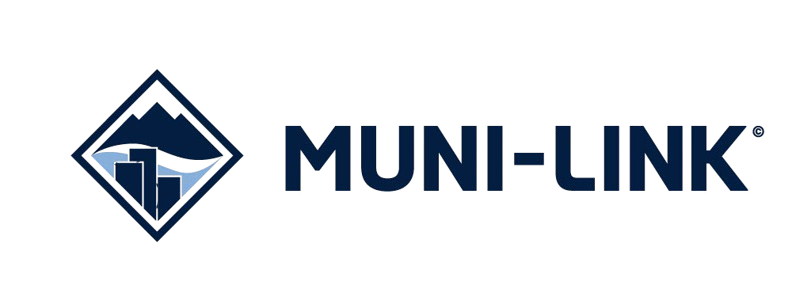
Why Your Municipality Needs a Website
Municipal website development is no longer a nice-to-have for local governments, it’s a public service. A modern municipal website helps residents find answers fast, reduces phone calls and walk-ins, and creates a reliable source of information during outages, rate changes, and emergencies. If you’re evaluating web development for municipalities, focus on accessibility, mobile usability, and clear, searchable content.
Municipal Website Design & Development: What Cities Need in 2026
When planning web design for municipality needs, the goal isn’t just a better-looking website, it’s fewer frustrated residents and less administrative burden for staff. Strong municipal website design should make it easy to find key services, access billing and notifications, and get accurate updates without calling the office.
Today, online platforms are considered more convenient ways of accessing information and services and even conducting business. For municipalities, having an engaging, easy-to-navigate website is crucial to satisfy residents’ needs and provide effective services. However, many municipalities in the United States don’t have local government websites, with some only relying on social media pages. Furthermore, only 3% of city websites meet industry standards.
Appreciating the crucial role of websites in service delivery can help increase the adoption of websites in government. A good website can bridge the communication gap between residents and city officials, providing benefits for all. If you want to see how Muni-Link supports municipal website design and citizen communication, request a demo and we’ll walk through WebPresence and Notifications.
What Is a Government Website?
A government website is owned and operated by a government entity. An example is a township website that provides information about the area, town government officials, services offered and local news. The main purpose of a government website is to digitally connect users to the services and information they need from that specific government entity, whether it’s an agency, a municipality or a state government.
Reasons to Have a Municipal Website
In the modern era, websites are a must-have government resource for any municipality that wants to serve its residents efficiently. Here are some of the reasons why your municipality needs a website:
Provide Online Services
As of 2024, nearly 94% of Americans have access to the internet, and much of their online activity occurs on smartphones. As more people use their smartphones as their primary sources of information, municipalities can bring services closer to their residents by providing online services. A responsive municipal website design ensures the website can be accessed on mobile devices, allowing residents to get information wherever they are.
Websites make it easy and convenient to access government services and information. A municipal site can offer online services such as renewing licenses, accessing public records and paying bills. Your municipality can also provide access to valuable resources such as educational materials about community programs, directories of local services and guides on how to get municipal support.
A website is more effective than traditional mediums for communicating emergency information and updates to the public. Residents can access the information in real time on their computers or mobile devices. City information sites that serve as emergency communication tools are especially important during natural disasters and other crises.
Promote Transparency and Boost Credibility
A website creates transparency by giving residents access to public-interest information such as agendas and meeting minutes. By placing these materials online, the municipality builds trust among the residents. Municipalities can also adopt open data initiatives and publish datasets related to public health records, crime statistics and environmental monitoring.
Additionally, municipal governments can use websites to clarify government processes. For example, municipalities can provide information on how to participate in elections and how to apply for permits.
Attract Businesses and Future Residents
Business owners seeking to expand their businesses in other localities might need to access municipal websites as part of their research. Entrepreneurs want to learn how the local government helps businesses and the services and amenities offered. If your municipality doesn’t have a website, entrepreneurs must travel or use other less convenient means to get the information.
A website is also helpful in educating people about the town. You can use your website to explain to potential entrepreneurs and people seeking to relocate why the area is a great place to do business in or move to.
Community Engagement
A municipal website can be used to initiate and promote community engagement. The best municipal websites encourage active engagement by sharing social media links and providing forums and event calendars to keep the community involved and informed. Residents can communicate their needs through feedback forms or the contact details of staff members provided on the municipal websites.

The municipality can use the website to share information and updates about project statuses, municipal news and community events. In addition, the municipal government can use sites to showcase local achievements, cultural events and historical information, strengthening community identity and instilling pride. Information sharing fosters a sense of belonging and inclusion, as the residents feel they’re part of an informed community.
Top Features a Municipal Website Should Have
While creating a website for your city is a great first step, it must include several important features to ensure it’s accessible and useful. Here are some of the essential elements a government website should have:
- Responsive design: As of the fourth quarter of 2023, 57.8% of daily time spent online was via mobile devices. The remaining 42.4% of users used computers. Your government website must be mobile responsive to reach this large audience on mobile devices. In addition, the site should follow requirements from the Americans with Disabilities Act and adhere to web accessibility standards to ensure individuals with disabilities can access the website.
- Intuitive navigation: Government websites can host large datasets and information. An intuitive navigation layout can help site users locate information quickly. Make sure the website has a simple user interface to reduce confusion and streamline access.
- Accessible online forms and payment: Cut down on the need for residents to print and mail forms by giving them access to online alternatives. Users can fill out and submit the forms online, saving them time and reducing waste. If possible, you can integrate online payment options for different government services, like car registration renewals.
- Site search: Users want to find information quickly, and the site search feature is useful for this purpose. Users can use keywords to locate information anywhere on the website.
- Email alerts: Use automatic email alerts to keep the community informed and engaged. Residents can subscribe to specific areas of interest to get notified when relevant information is added to the website.
Choose Muni-Link for Government Utility Billing Software
A well-designed website is a critical tool for any government entity that wants to modernize its service delivery. To make the process easier and offer useful website tools on your website, you can engage reputable city website design and development service providers.
At Muni-Link, we provide customer communication management software you can use to communicate with residents. This content management system allows anyone to effectively communicate with the public, regardless of the municipal staff member’s level of technical knowledge.
We also provide utility billing software for municipalities. This cloud-based software covers all major utilities, including waste, gas, heating and water. This tool helps you eliminate slow manual processes and ensure safety and compliance while collecting customer data.
Are you ready to learn more about how we can assist your municipality with comprehensive billing software solutions? Contact us for a demo today.

